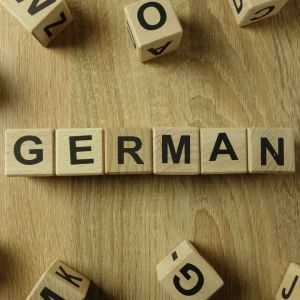German Antonyms
One of the most critical steps when learning German is learning antonyms. Antonyms help you improve your language skills while also expanding your vocabulary. Using these words correctly is of great importance in order to express the correct meaning in German and to create more effective sentences.
So how can you learn German antonyms and integrate them into your daily conversations?
German Antonyms
As sculin.com, we will explore ways to learn and use German antonyms correctly, and offer effective step-by-step methods to make your language stronger. If you have questions like “How can I learn German antonyms?” or “How can I improve my German vocabulary?”, are you ready to explore together?
German Antonyms and Their Turkish Meanings
groß (big) – klein (small)
heiß (hot) – kalt (cold)
lang (long) – kurz (short)
hell (clear, bright) – dunkel (dark)
schwer (heavy) – leicht (light)
schnell (fast) – langsam (slow)
neu (new) – alt (old)
freundlich (friendly, kind) – unfreundlich (rude)
gut (good) – schlecht (bad)
reich (rich) – arm (poor)
leise (quiet) – laut (loud)
teuer (expensive) – billig (cheap)
stark (strong) – schwach (weak)
Freund (friend) – Feind (enemy)
früh (early) – spät (late)
hoch (high) – tief (deep, low)
süß (sweet) – sauer (sour)
dünn (thin) – dick (thick, fat)
fröhlich (cheerful) – traurig (sad)
sicher (safe) – unsicher (unsafe)
klar (clear, clear) – unklar (uncertain)
nah (near) – fern (far)
richtig (correct) – falsch (wrong)
schwierig (difficult) – einfach (easy)
ruhig (calm) – aufgeregt (excited, tense)
modern (modern) – altmodisch (old-fashioned)
jung (young) – alt (old)
breit (wide) – schmal (narrow)
weich (soft) – hart (hard)
geöffnet (open) – geschlossen (closed)
gesund (healthy) – krank (sick)
scharf (sharp) – stumpf (blind)
müde (sleepy) – wach (awake)
voll (full) – leer (empty)
German Opposite Words Example Sentences
groß (big) – klein (small)
● The Hund is groß, but the Katze is klein.
(The dog is big, but the cat is small.)
heiß (hot) – kalt (cold)
● Heute is es sehr heiß, gestern war es kalt.
(Today is very hot, yesterday was cold.)
lang (long) – kurz (short)
● Der Film war lang, aber das Meeting war kurz.
(The movie was long, but the meeting was short.)
hell (bright) – dunkel (dark)
● Der Raum ist hell, aber der Keller ist dunkel.
(The room is bright, but the basement is dark.)
schwer (heavy) – leicht (light)
● Der Koffer ist schwer, aber die Tasche ist leicht.
(The suitcase is heavy, but the bag is light.)
freundlich (friendly) – unfreundlich (rude)
● Mein Nachbar ist sehr freundlich, aber sein Bruder ist unfreundlich.
(My neighbor is very friendly, but his brother is rude.)
schnell (fast) – langsam (slow)
● Das Auto fährt schnell, aber das Fahrrad ist langsam.
(The car is going fast, but the bike is slow.)
neu (new) – alt (old)
● Mein Handy ist neu, aber mein Laptop ist alt.
(My phone is new, but my laptop is old.)
teuer (expensive) – billig (cheap)
● Das Restaurant ist teuer, aber das Café ist billig.
(The restaurant is expensive, but the cafe is cheap.)
stark (strong) – schwach (weak)
● Er ist stark, aber sein Freund ist schwach.
(He is strong, but his friend is weak.)
If you are looking for answers to questions like "What are German antonyms?", "German antonym examples", you can easily learn these words by checking out our German Antonyms blog post!
If you want to improve your language skills even more, you can check out our Sculin blogs from the link!


 Sculin Kids
Sculin Kids 